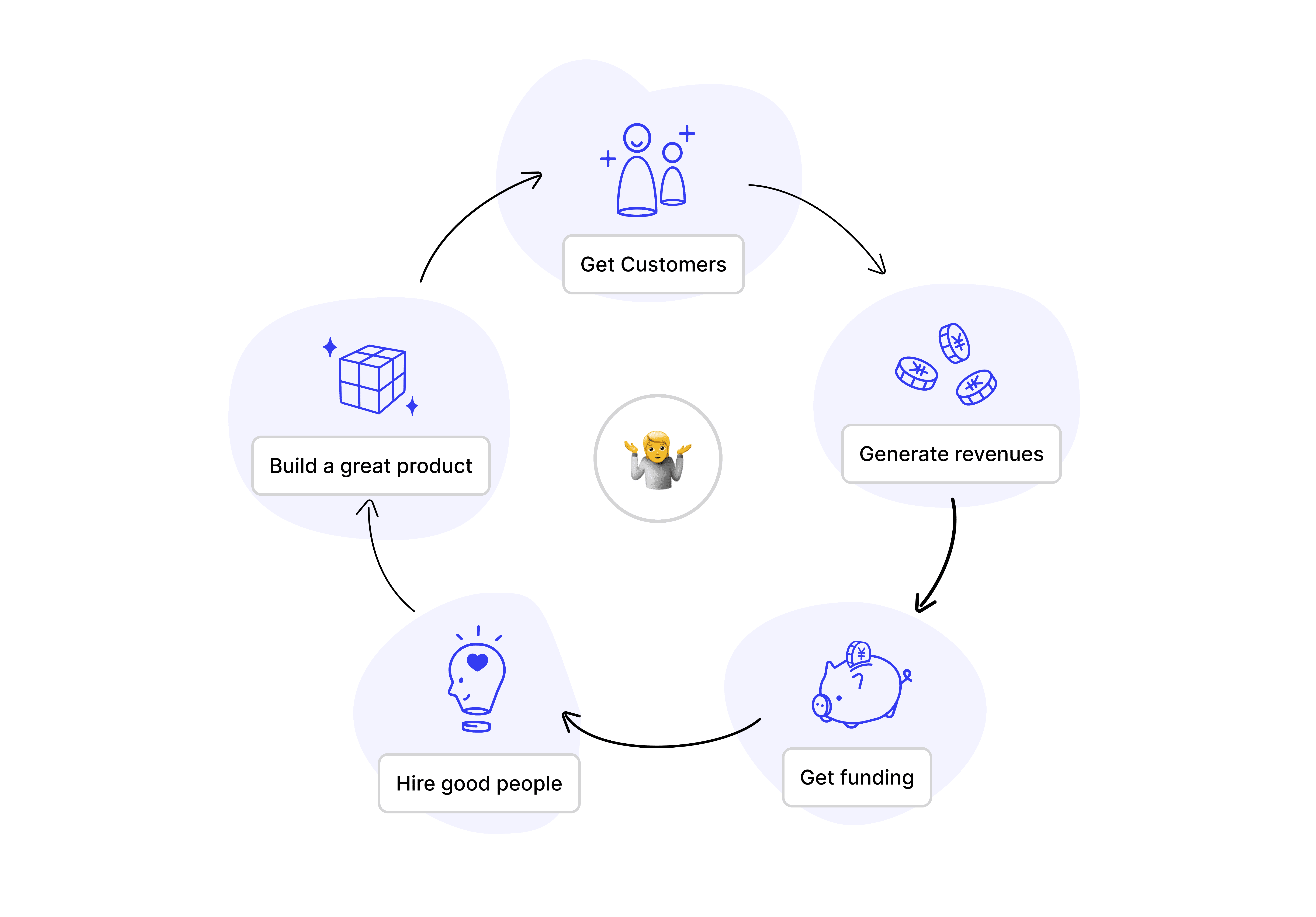/
Building ventures often feels like a chicken-and-egg situation where each piece of the puzzle seems dependent on the previous one, but it's not always clear where to start.

You're looking to raise funds to power up your operations.
But to raise money, you typically need to demonstrate traction, often through revenue.
And to generate revenue, you typically need to acquire customers.
To acquire customers, you most likely need to have a fairly good product already.
Often, to build a good product, you need help from talented people.
But to get help from talented people, you probably need funds…
For founding teams, the early days are largely focused on finding ways to break that cycle and gain a head start. Here are a few ways we've seen ventures get things moving successfully.
Bootstrapped teams
Let’s start with the obvious: because of their skillsets, complementarity, and personal financial situation, some founding teams can independently work on building the right product for a certain period without requiring outside funding or help. Their focus can be solely on learning about their customers, building an awesome product, and generating traction.
That’s by far the ideal situation, but let's face it, not the case for a lot of ventures.
If you want to learn more about how to choose your co-founders and assemble the perfect founding team, this talk from Y Combinator is a great resource to begin with.
Build distribution first
For consumer products, building distribution first can be a good one that many founding teams overlook. Essentially, you don’t start by building a product, but by federating an audience around a theme or a problem — think newsletters, Facebook groups, meetups. It gives you a great pool of people to uncover the right problem to solve and test early ideas with, and a platform to launch later on.
Building distribution first is a strategy that has been famously advocated by Reid Hoffman, co-founder of Linkedin and serial investor. To learn more about Hoffman's perspective on distribution, you can listen to his episode of the Starting Greatness podcast (or read the transcript).
Find a client-sponsor
When it comes to enterprise software, a common approach is to start by acquiring a first customer who can essentially sponsor the development of the product, prior to the product being built. You get paid to create a solution that is tailored to the specific needs of that enterprise, and then you can resell it to other similar businesses.
This approach is very sales-driven, but it is also the most customer-centric one since it focuses on solving a specific company's problems. However, it does rely on your ability to build trust with the customer before having any tangible assets to show. Lenny Ratchisky's interview of April Dunford provides a great crash course in sales for startups.
Start with the old
Another approach we have encountered is to start by building a "legacy" business that generates a stable source of income. This income can then be reinvested in developing a more innovative solution within the same industry. We have seen examples of this with recruiting companies that generate steady revenues through placements while simultaneously building HR-tech products, hotel chains that consistently sell room nights while digitalizing the guest experience, and consultants who gradually transition from selling hours and workshops to selling content and tools.
While it is not the most common practice, for founding teams that have established themselves in a particular industry and are looking to bootstrap or retain as many shares as possible, it can be a less risky path to pursue.
This is by no means an exhaustive list — there are as many strategies as there are founding teams — but, hopefully, it can provide some inspiration.
What is your opinion? How can early-stage ventures set the wheel of success in motion?